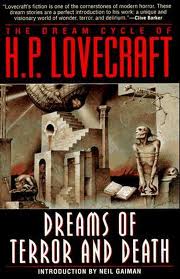Life’s profound problems often get resolved in the sleep that comes before the final rest, these authors say
By Anne Underwood
Newsweek Magazine
July 25, 2005 issue
As a hospice chaplain for 10 years, the Rev. Patricia Bulkley confronted the raw emotions of the dying-their terror at the approaching end, their unresolved family problems, their crises of faith. They were people like Charles Rasmussen, a retired merchant-marine captain in his mid-80s who was dying of cancer. He was consumed by fear until, in a dream one night, he saw himself sailing in uncharted waters. Once again, he felt the thrill of adventure as he pushed through a vast, dark, empty sea, knowing he was on course. “Strangely enough, I’m not afraid to die anymore,” he told Bulkley after that dream. Death was no longer an end, but a journey.
As Bulkley reveals in a slender but powerful new book, “Dreaming Beyond Death,” many people have extraordinary dreams in their final days and weeks. These dreams can help the dying grapple with their fears, find the larger meaning in their lives, even mend fences with relatives. Yet all too often, caregivers dismiss them as delusional or unworthy of attention. Not Bulkley, who often discussed dreams with patients at the Hospice of Marin in California. Her experiences were the inspiration for the book, which she coauthored with her son Kelly Bulkeley, a past president of the International Association for the Study of Dreams. It is the first volume devoted to the (paradoxically) life-affirming power of pre-death dreams. And though the research is still preliminary, the authors inject level-headed analysis into an arena often dominated by seekers of the paranormal.
Accounts of prescient or meaningful pre-death dreams span religions and cultures, from China and India to ancient Greece. The last dream that psychologist Carl Jung was able to communicate to his followers, a few days before his death, was of a great round stone engraved with the words “And this shall be a sign unto you of Wholeness and Oneness.” To Jung, it showed that his work in this life was complete. Socrates and Confucius also spoke of significant dreams they had shortly before their deaths.
Yet there has been little systematic study of such dreams in modern times. The inherent difficulties are obvious. You can’t enroll people with a week or two to live in formal studies-and they’re hardly going to walk into a sleep clinic and volunteer. By default, hospice workers and family members have collected more of these stories than dream researchers. No one even knows what percentage of people ultimately experience such dreams. Still, scientists recognize that they can be deeply meaningful.
There are certain overarching themes that emerge-going on journeys, reuniting with deceased loved ones, seeing stopped clocks. Often the imagery is straightforward. In one woman’s dream, a candle on her hospital windowsill is snuffed out, engulfing her in darkness-a symbol of death that scares her, until the candle spontaneously relights outside the window. A man struggling to find meaning in his life dreams of a square dance in which the partners leave visible traces of their movements, like ribbons weaving a pattern. “There really is a plan after all, isn’t there?” the man asked Bulkley after that dream. “Somehow we all belong to one another.”
But not all pre-death dreams are comforting. They can also frighten the dreamer, who imagines being chased through crumbling cityscapes or hurtling in a driverless car toward a freshly dug ditch or entering the sanctuary of a cathedral, only to have a tornado break through the roof and suck the visitor up into the whirlwind. “I’ve had patients who woke up pounding on the mattress, very agitated, struggling with the idea that they’re going to lose this battle,” says Rosalind Cartwright, chair of behavioral sciences at Rush University Medical Center. These dreams are warnings of unresolved issues. But by forcing attention to the underlying problems, nightmares may ultimately help the dreamer find peace. “Ignore them at your peril,” says Cartwright.
It is hardly surprising that pre-death dreams are more urgent, more vivid and more memorable than the run-of-the mill patchwork of dreams. “Throughout life, at acute stages of crisis and transition, the need to dream is intensified,” says psychologist Alan Siegel of the University of California, Berkeley. The more dramatic the event, the more the dreams cluster around solving related emotional issues. Pre-death dreams can be so intense that the dying mistake them for waking reality-especially when the dreams feature dead relatives.
Yet despite the power of these dreams, caregivers often miss the opportunity to explore their meaning. It’s a loss on both sides, according to Bulkley. Talking about end-of-life dreams can give family members a way to broach the uncomfortable topic of death, she says. For the dying, discussing such a dream can provide a simple way to articulate complex emotions-or, if the meaning of the dream is unclear, to fathom its purpose. And to the extent the dying person finds comfort in any such dream, so do surviving relatives. “These are the stories that get repeated at funerals,” says Bulkley. “They become part of the family lore.”
The authors resist the notion that pre-death dreams prove the existence of God. Yet the dying often interpret them as affirmations of faith. On her deathbed, a female cancer patient of Bulkley’s was stricken with doubts about the nature of God. For three nights in a row, she dreamed of huge boulders that pulsated with an eerie blue light. To her, they represented a divine being that was unidentifiable, but very real. “I don’t need to know anything more than that,” she told Bulkley. “God is God.” But she had one final dream. In it, the boulders morphed into steppingstones. In the distance a golden light glowed. “It’s calling me now, and I want to go,” she told Bulkley that morning. She died the next day-at peace.
© 2005 Newsweek, Inc.
© 2005 MSNBC.com
Pictures and Scans of original article 2005 Newsweek
Page 50 [250kb]
Page 51 [250kb]
 I’ve just joined REMcloud, a new social networking site devoted to dreaming. It’s an idea whose time has come. As a technophobic introvert it pains me to say this, but sharing dreams in a Facebook-like setting has a lot of appeal. It allows you to connect your personal dreams with dreams of countless other people all over the world. It’s quick, easy to use, and free, and it provides tools to explore recurrent themes in your dreams and the dreams of others.
I’ve just joined REMcloud, a new social networking site devoted to dreaming. It’s an idea whose time has come. As a technophobic introvert it pains me to say this, but sharing dreams in a Facebook-like setting has a lot of appeal. It allows you to connect your personal dreams with dreams of countless other people all over the world. It’s quick, easy to use, and free, and it provides tools to explore recurrent themes in your dreams and the dreams of others. 




